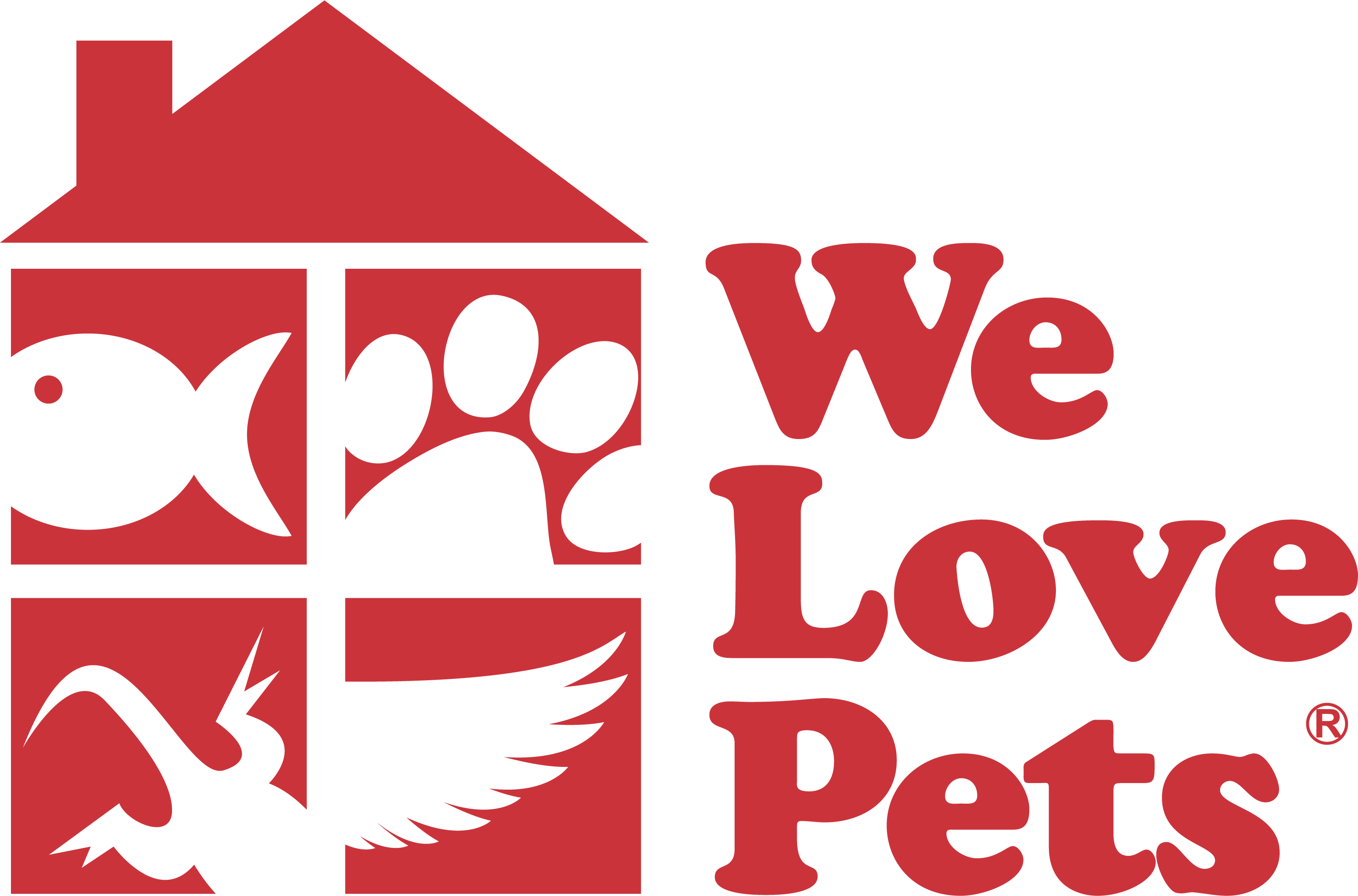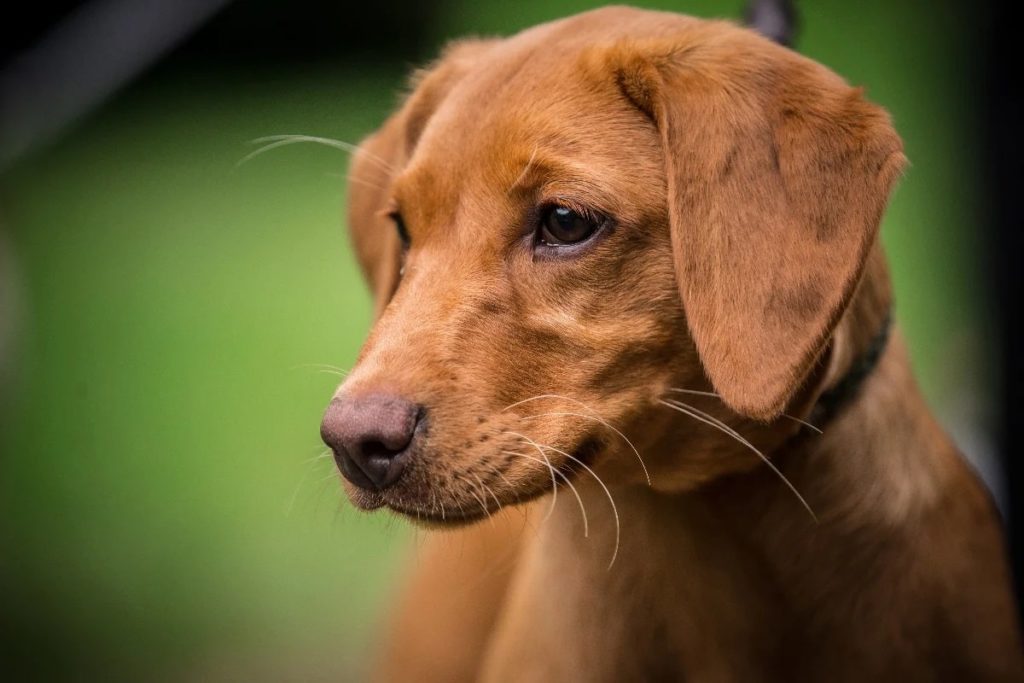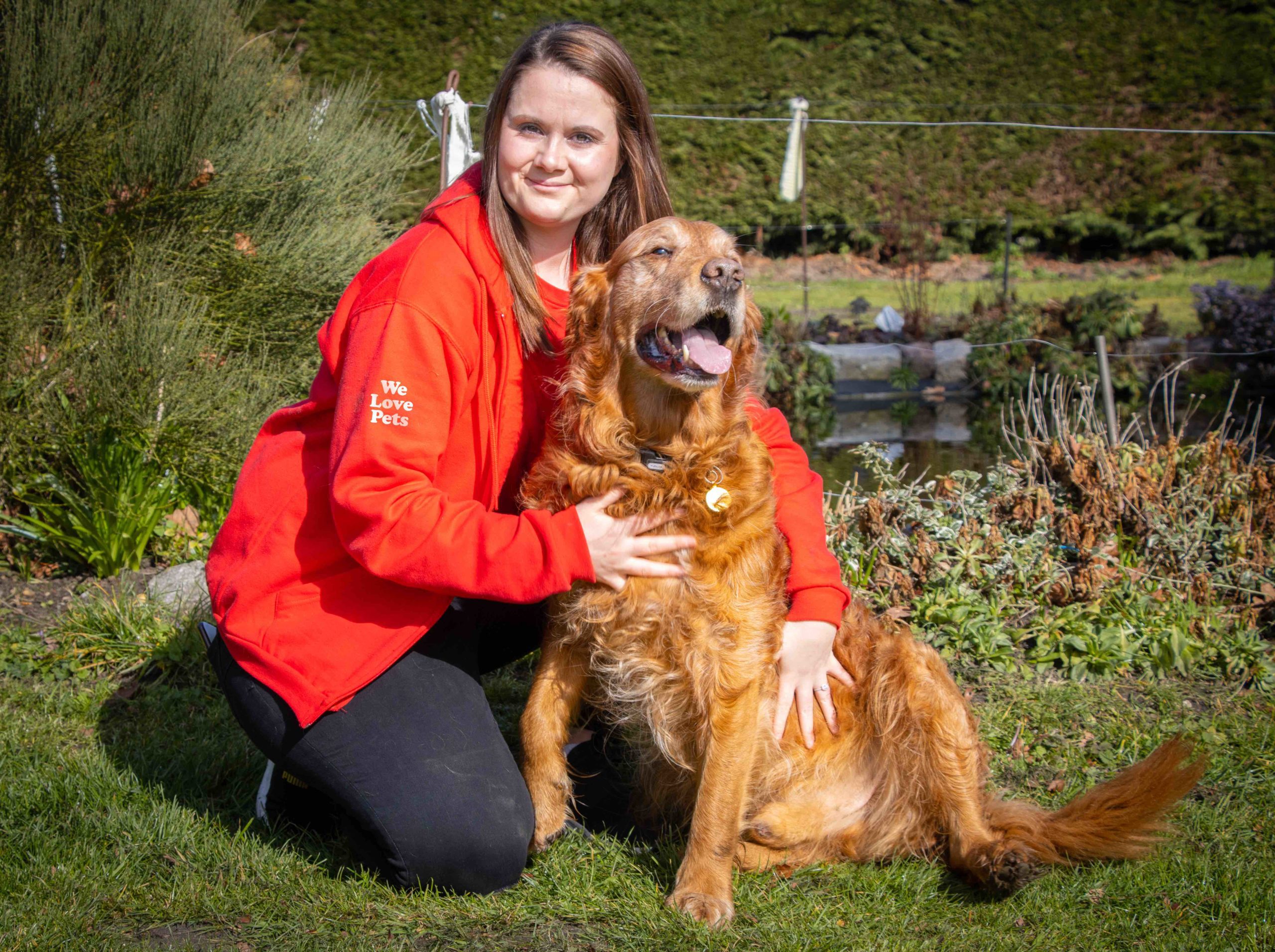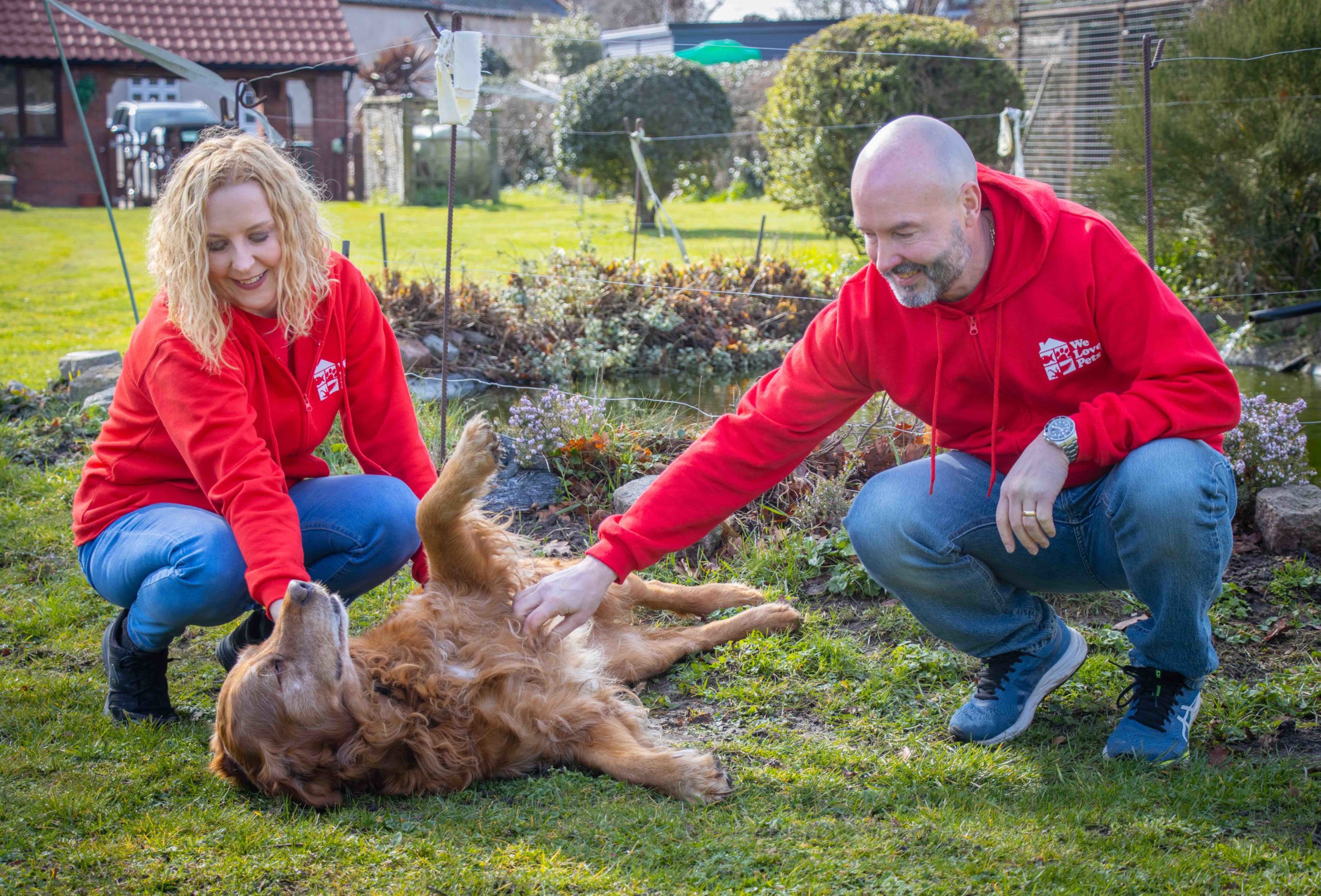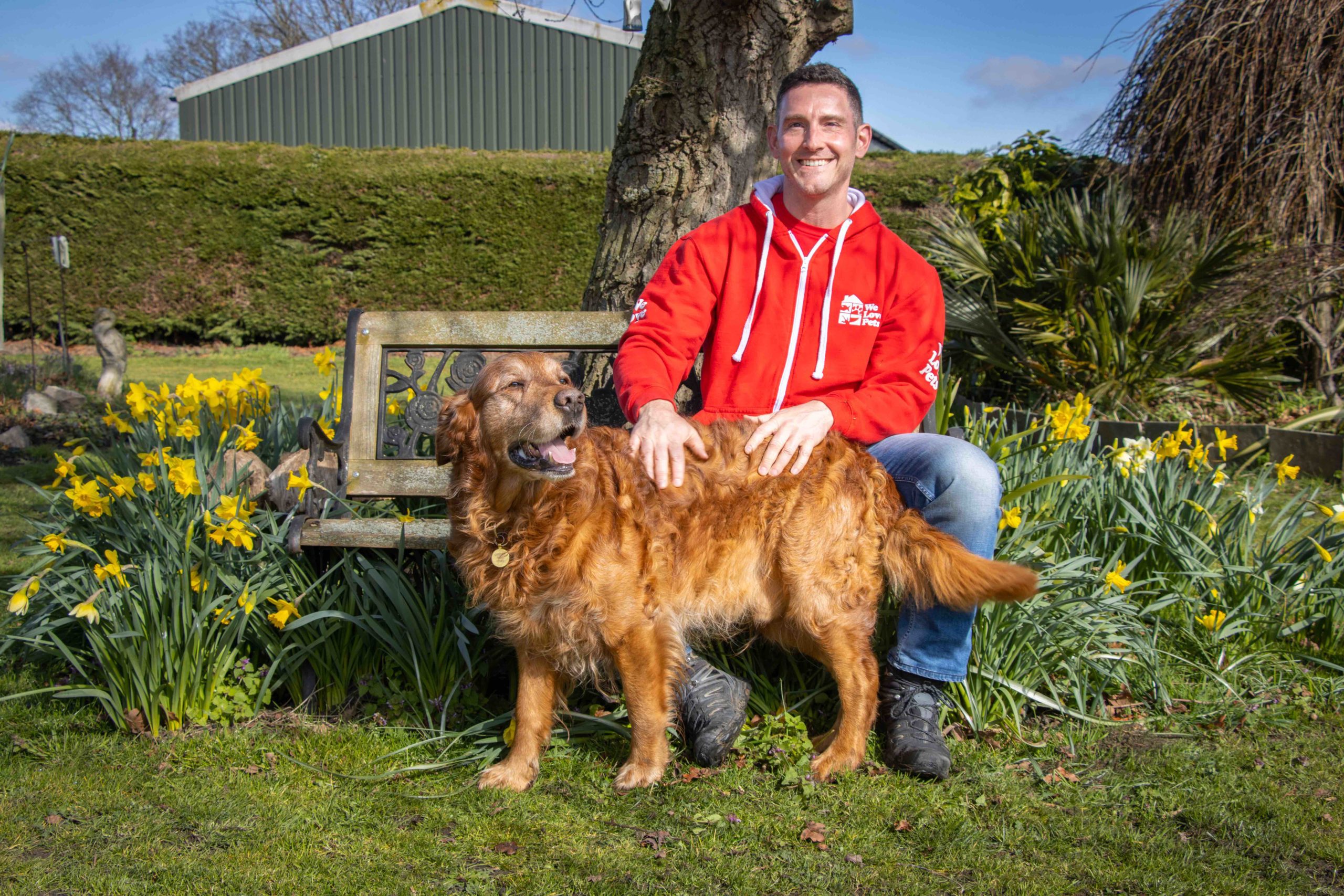The latest advice from the Government to stay home on lockdown is a tough measure to abide by, especially when you have a puppy under three months who needs socialising. Nevertheless, we must do what we can to stay safe and well during the Coronavirus pandemic and that means adapting to a new environment where we need to socialise our puppies in isolation. But how?
What is puppy socialisation?
It’s not about socialising in the sense that we do, puppy socialisation is a process a puppy must go through to learn how to interact with us, other dogs, other animals and the world at large. These interactions should be positive so that the puppy has a good foundation from which to learn how to politely greet people and other dogs. It’s how they learn good manners.
Another part of the process is to habituate – meaning to become accustomed to normal everyday things that happen that don’t have any direct effect on the puppy. These can be things like noises, a car driving by, a child riding a bike, a bird flying overhead, vacuuming the house etc. It’s important that puppies learn to let these things pass by without getting scared by them.
Puppy socialisation in normal circumstances
Puppies would normally be introduced to a variety of environments during socialisation, particularly those where they can learn how to get along with other dogs. Well-socialised puppies are less fearful and better behaved as adult dogs. They are generally more comfortable with other people, dogs and animals too, which they learn from the interactions you set up for them. These should be relaxed and as fun as possible.
The window of opportunity to socialise your puppy where it’s going to have the greatest impact is the first three months. Any later and the puppy’s personality is becoming more established and harder to mould. It’s never too early to start.
Puppy vaccinations during the Covid-19 outbreak
There is a lot of confusion around when it is safe to take your puppy outside. Each type of vaccine is different, however as a general rule you should wait 10 days after your puppy’s had its second vaccination.
During the Coronavirus lockdown it may be difficult to arrange vaccinations at your local vets but don’t assume they are closed. Keep in touch with them and schedule vaccinations as normal.
Top 10 puppy socialisation tips in times of lockdown
Normally we would recommend lots of puppy socialisation activities that involve being close with a range of people, including a dog walker, trainer or going to a puppy class. But these aren’t normal times and we need to adapt our thinking because our puppies still need us to help them become fully rounded, confident dogs in the future. Try these tips at home to keep the socialisation process going regardless of what is happening outside of the house.
1. Get outside with your puppy as much as you can. If your puppy isn’t vaccinated yet, you can still go out for a walk as part of your exercise allowance, but limit their interaction. Carry them in your arms if you have to. If you are self isolating and you have a garden, it’s important for you and your pup to spend time in the fresh air.
2. Check out online training videos. There might not be any classes available right now but there will be plenty of training videos and fun games online to watch and play at home. Keep an eye on our social media for inspiration.
3. Take them on an adventure inside the house. There are lots of different surfaces within a house and garden to explore. Show your pup that they aren’t a big deal and reward them with treats with every curious step they take to explore their immediate environment.
4. Create an obstacle course. Bring out some pots, pans and utensils from the kitchen and place them close to each other with treats dotted around. Let your puppy explore this noisy world and reward them when they do. Be encouraging, don’t force them into it.
5. Hold them up to the window. You can still help your puppy get new experiences even on lockdown by letting them watch the world outside, listening to sounds and seeing people or cars go by.
6. Help them get used to noises with an app. Download Sound Proof Puppy Training app to gradually introduce noises to your pup that they can get used to from the comfort of home.
7. Practice social distancing on walks. Social distancing forces a hands off kind of greeting between puppy and another dog or another person. Keeping at least 2 metres apart, practice cueing your puppy to sit to greet other people and dogs. Reward calm behaviour and their engagement with you and others.
Amy Pearson, an advanced dog trainer and We Love Pets branch owner advises:
“The quietness that comes with social distancing and lockdown can actually go in your favour as you can get puppies used to new places without being overwhelmed by a lot of people being present.
It’s important to teach puppies that whilst they are adorable and everyone does want to say hi to them, it won’t always be the case! They need to learn that they won’t get to say hello to everyone and everything they meet and this is a good time to start learning that.”
8. Move the furniture around. While your puppy is in a different room, move the furniture around and take some familiar objects away. Try this in different rooms in the house as they get more confident.
9. Add movement. Bring out anything that you can move or moves independently to help your pup adjust. You can ride a bike in the garden or driveway, put the laundry out on a windy day, bounce on an exercise ball.
10. Practice handling. Prepare your puppy for examinations at the vet by rewarding some basic handling movements. Start with looking at their teeth, opening their mouth, looking at their eyes, then ears, feeling their forepaws, stomach, hindlegs, hindpaws and finally tail. Reward each action with a treat. Do this at least once a week.
Puppy socialisation dos and don’ts
It’s important to let your puppy see as much as you can but remember, never pull your puppy towards something if they don’t want to go. You need to be your puppy’s safe place, not the person that drags them towards something they find scary.
Give your puppy time and let them observe from a distance. If they are scared, do not pick them up unless you absolutely have to, they will get more information from being on the ground and will be able to show you what they want to do with their feet. If they retreat, that’s OK, it’s more important to build their confidence over time.
If your puppy tries to move towards something inappropriate, be a “tree” – let the lead tighten but do not move. Let them look at whatever it is from where they are and when they are ready to go, move on.
If they are startled by a noise, throw some treats on the floor, not only will it distract them, but they will learn that surprises are not necessarily bad!
It’s all about building confidence. With each new situation let your puppy observe from a distance so they don’t feel overwhelmed, scared or overexcited. As long as your pup is unconcerned you can slowly get closer.
Use training treats to make experiences positive. These grain free training treats from We Love Nutrition are ideal for puppies.
Remember, puppy socialisation is a long process and when the Coronavirus restrictions begin to lift, your puppy will need gradual introduction to the new experiences and environments that will become available – just as he does now in his immediate environment.
